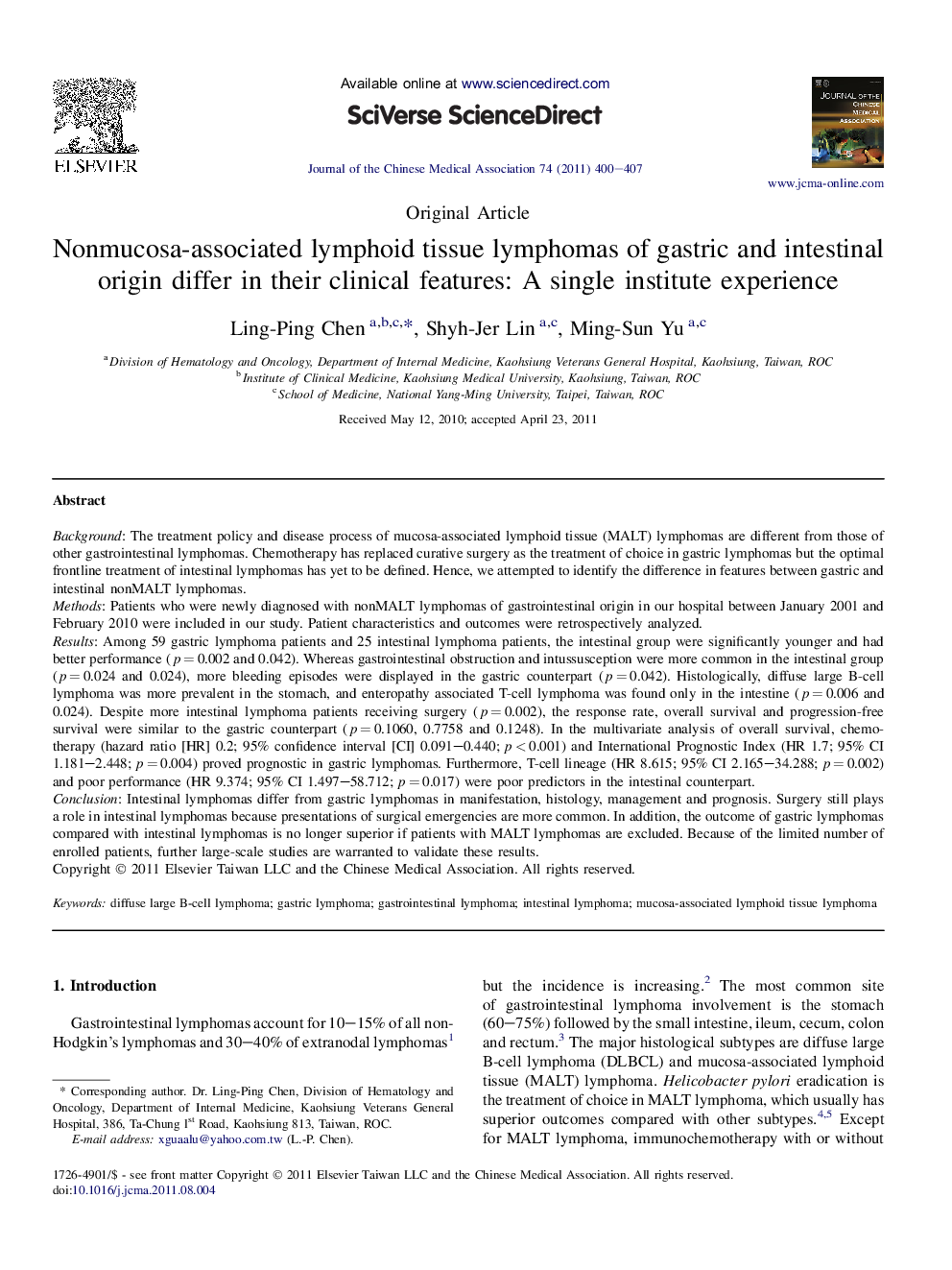| کد مقاله | کد نشریه | سال انتشار | مقاله انگلیسی | نسخه تمام متن |
|---|---|---|---|---|
| 3476884 | 1233288 | 2011 | 8 صفحه PDF | دانلود رایگان |

BackgroundThe treatment policy and disease process of mucosa-associated lymphoid tissue (MALT) lymphomas are different from those of other gastrointestinal lymphomas. Chemotherapy has replaced curative surgery as the treatment of choice in gastric lymphomas but the optimal frontline treatment of intestinal lymphomas has yet to be defined. Hence, we attempted to identify the difference in features between gastric and intestinal nonMALT lymphomas.MethodsPatients who were newly diagnosed with nonMALT lymphomas of gastrointestinal origin in our hospital between January 2001 and February 2010 were included in our study. Patient characteristics and outcomes were retrospectively analyzed.ResultsAmong 59 gastric lymphoma patients and 25 intestinal lymphoma patients, the intestinal group were significantly younger and had better performance (p = 0.002 and 0.042). Whereas gastrointestinal obstruction and intussusception were more common in the intestinal group (p = 0.024 and 0.024), more bleeding episodes were displayed in the gastric counterpart (p = 0.042). Histologically, diffuse large B-cell lymphoma was more prevalent in the stomach, and enteropathy associated T-cell lymphoma was found only in the intestine (p = 0.006 and 0.024). Despite more intestinal lymphoma patients receiving surgery (p = 0.002), the response rate, overall survival and progression-free survival were similar to the gastric counterpart (p = 0.1060, 0.7758 and 0.1248). In the multivariate analysis of overall survival, chemotherapy (hazard ratio [HR] 0.2; 95% confidence interval [CI] 0.091–0.440; p < 0.001) and International Prognostic Index (HR 1.7; 95% CI 1.181–2.448; p = 0.004) proved prognostic in gastric lymphomas. Furthermore, T-cell lineage (HR 8.615; 95% CI 2.165–34.288; p = 0.002) and poor performance (HR 9.374; 95% CI 1.497–58.712; p = 0.017) were poor predictors in the intestinal counterpart.ConclusionIntestinal lymphomas differ from gastric lymphomas in manifestation, histology, management and prognosis. Surgery still plays a role in intestinal lymphomas because presentations of surgical emergencies are more common. In addition, the outcome of gastric lymphomas compared with intestinal lymphomas is no longer superior if patients with MALT lymphomas are excluded. Because of the limited number of enrolled patients, further large-scale studies are warranted to validate these results.
Journal: Journal of the Chinese Medical Association - Volume 74, Issue 9, September 2011, Pages 400–407